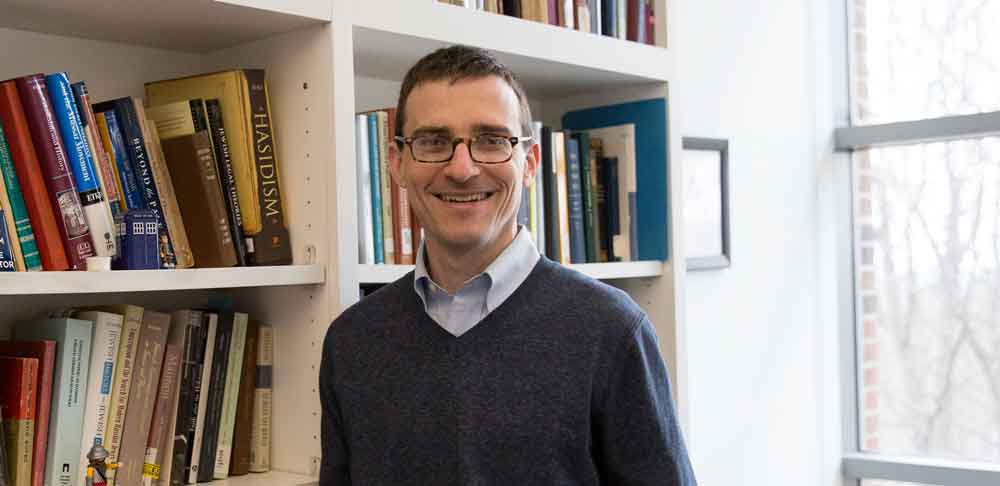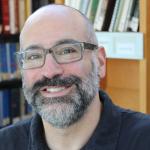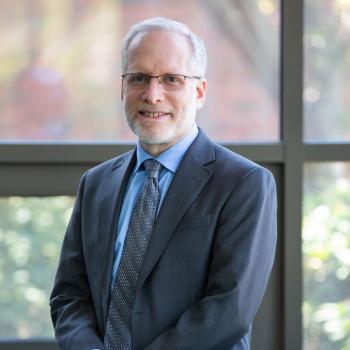
Parashat Tzav (Leviticus 6:1-8:36)
The last book that Abraham Joshua Heschel wrote was a 300+ page Yiddish tome on the theological and philosophical relationship between a renowned pietistic Hasidic master of the early 19th century, Reb Menachem Mendl of Kotsk and the famous Christian theologian and mystic Soren Kierkegaard. A book about two 19th century religious figures may not sound like a page turner, but at the heart of the book is a reflection on passion and joy. Heschel explains that the Baal Shem Tov, the founder of Hasidism, emphasized passion in religious acts: “The Baal Shem Tov thought of the Jew’s relationship to God as a romance, and it disturbed him to see how many rituals had become routine rather than rapturous acts, exercises in repetition rather than gestures of surprise—a hand without a heart.” The Baal Shem Tov created a new way of Judaism, a revolt against the sobriety and rigidity of the Judaism he saw around him: “A hasid prays, studies, and lives in exaltation. One can see and feel the fire in his every feature, his speech, his bearing.” But later generations of Hasidic leaders began to question the emphasis on fervor, they worried it was characterized by excessive displays without real commitment. And here is where things get interesting.
According to Heschel, a generation of Jewish spiritual leaders emerged who shunned overt displays of piety and fervor; they believed, “Nothing is as obnoxious as demonstrative piety.” They scorned people who were ecstatic in religious acts, “but then returned to their former selves, static and gray.” They wanted consistency, not momentary ecstasy. “Ecstasy could lead to self-deception…the flame burned for a while. What remained? Smoke and ashes.”
A division emerged amongst Hasidic thinkers: on the one side were those who counseled that ecstatic prayer and joyfulness were essential to Judaism, and on the other, those who believed that one should be inwardly passionate, rejecting any displays of ardor.
And at the center of the debate were verses from this week’s Torah portion.
The Lord said to Moses, “Command Aaron and his sons, saying: ‘This is the law of the burnt offering. The burnt offering shall be on the hearth upon the altar all night until morning, and the fire of the altar shall be kept burning on it.’” (Leviticus 6:1-2)
At first blush it may not seem like a verse at the heart of a debate about fervor, but this verse has many commentaries which understand that the fires of the altar are actually the human fire for piety and ecstatic experiences of G-d, and that these fires should burn all night within us. We are the altar that is to draw near to G-d, and the fire should burn.
Heschel brings a rather wonderful reading from Reb Yitzhak Meir who says that this verse indeed calls for us to be passionate, to have a fire burn. But that ecstatic fire is not about whirling or dancing, or anything that might be a showy display of piety. Rather, the fire that burns on the altar—if kindled appropriately—is, “the fire of ecstasy that burns up all meanness.”
I love the phrase. It is reaching for something quite delicate and paradoxical about religious faith. One should indeed be passionate about one’s faith, one should not be sterile or overly sober, one needs to be as Heschel wrote in the Yiddish, farbrente, (“on fire”) for G-d. But that fire is meant to burn away pettiness, jealousy, or self-righteousness.
It’s almost too obvious to point out that we are living in a moment of profound meanness. Divisions and rancor are a given in our political discourse and in the way we see each other. People are on fire. The world is on fire. Some of that is no doubt healthy; this is not the moment for quietism. But so much of it is unhealthy. We should be on fire. But it is not necessary for us to be on fire towards each other, I cannot help but think of a low burning fire that spreads warmth and light is what our moment calls for.
Rabbi Dan Judson, Ph.D. is the Provost of Hebrew College. He received his doctorate in Jewish history from Brandeis University and his book, Pennies for Heaven: A History of American Synagogues and Money was a finalist for the National Jewish Book Award. He is presently researching and writing a book on American Zionism in the 1920’s.

















